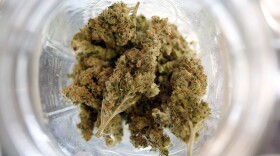-
Thousands of women say they've been harmed by the permanent contraceptive. But it's unclear whether the problems were caused by the device. The Food and Drug Administration is taking a closer look.
-
If parents don't have a name teed up, hospitals often give babies temporary ones, like Babygirl. But those generic names can be dangerously confusing, especially in the neonatal intensive care unit.
-
The residue from meth labs can cause health problems, but people aren't always told that the house they're buying is contaminated. An Indiana law requires disclosure but not mandatory testing.
-
In its first five years, the Affordable Care Act has survived technical meltdowns, a presidential election, two Supreme Court challenges -- including one…
-
The pot brownie you bought to help your sleeping disorder may have a lot less active ingredient than promised, a study finds. And a review of other studies finds scant evidence of medical benefits.
-
Australian James Harrison, 78, has been donating blood for the past 60 years. His plasma contains a rare antibody for a vaccine that protects pregnant women and babies with incompatible blood types.
-
Abortion rates are on the decline across the country.An Associated Press survey this week revealed abortion rates on average dropped 12 percent…
-
Indoor tanning boosts the risk of skin cancer, yet half of apartments close to the University of Texas, Austin, offer free use of tanning beds. Many let minors use the machines, which is illegal.
-
Sex education conjures images of teenage giggles and discomfort. But Bronx-based teacher Lena Solow is more than happy to talk about the topic.
-
In California nursing homes, just over 15 percent of dementia patients are on antipsychotic drugs. That’s far more than advocates say is necessary. But…
-
Back from a Liberia trip, the patient developed Ebola-like symptoms. One hospital sent him home. A few days later he ended up in an Ebola isolation ward and died. What went wrong?
-
The chief disease agency in the U.S. is looking into why the spores shipped to laboratories in nine states and a military base in South Korea hadn't been properly neutralized. So far no one is sick.














